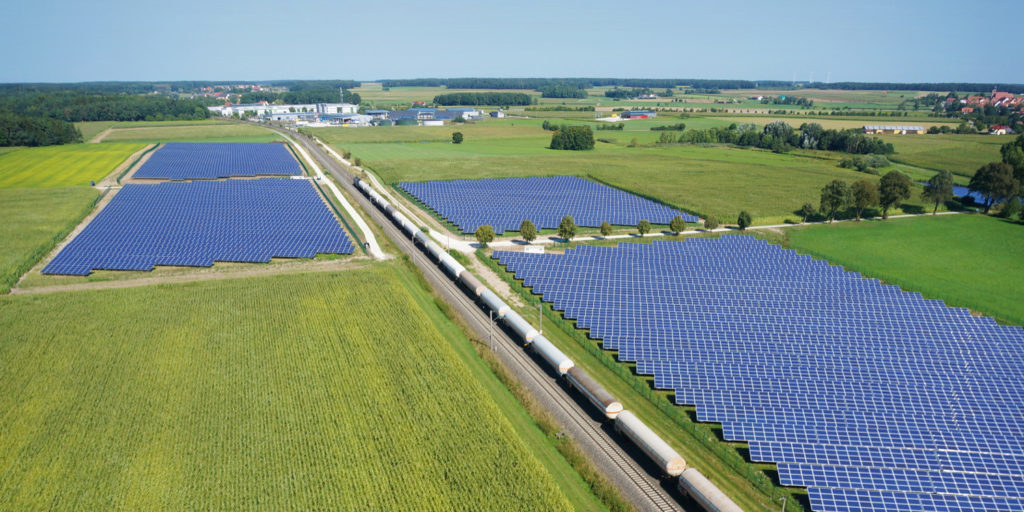Renewable energy is on track to comprise 38% of Germany’s gross electricity consumption in 2018 – a 2% increase on 2017. January, April and May were particularly strong for renewables, comprising up to 43% of generation during these months.
These are the results of a new report presented by German research institute ZSW (Zentrum für Sonnenenergie- und Wasserstoff-Forschung Baden-Württemberg) and industry association for water and energy economy BDEW (Bundesverband der Energie- und Wasserwirtschaft). In it, they find that by the end of 2018, total consumption of renewable energy could reach 229 billion kWh.
Solar PV contributed 46 billion kWh to this figure throughout the year, they say. This is tantamount to an increase of 18% compared to 2017. Showing an annual increase of 7%, onshore wind energy, however, was the biggest contributor with 94 billion kWh. Biomass remained nearly flat at 52 billion kWh – a 2% increase.
Offshore wind, meanwhile, saw a 10% increase to reach 19 billion kWh. As weather conditions were unusually dry this year in Germany, hydropower was the only form of renewable generation that saw its contribution to gross electricity consumption fall. At 17 billion kWh, it decreased by more than 16%.
Despite the growth, the report's authors caution that the current speed of development of renewable energy assets will not be sufficient to reach the German government's ambitions to reach a renewable penetration of 65% by 2030. “Therefore we need extraordinary tenders for offshore wind – a lot potential is being wasted in this segment,” says Stefan Kapferer, CEO of BDEW.
CEO of ZSW Frithjof Staiß, meanwhile urges the development of flexibility options to harmonize demand and supply with increasing renewable energy penetration. “Politics will have to fashion a policy framework that allows for the lucrative operation of storage systems, Demand-Side-Management, and similar technologies,” he explains.
Setting the course for the heating and transport sectors is particularly important. Notably, the transport sector will have to deliver measurable CO2-reductions, after a 15-year inertia.
This content is protected by copyright and may not be reused. If you want to cooperate with us and would like to reuse some of our content, please contact: editors@pv-magazine.com.



10 comments
By submitting this form you agree to pv magazine using your data for the purposes of publishing your comment.
Your personal data will only be disclosed or otherwise transmitted to third parties for the purposes of spam filtering or if this is necessary for technical maintenance of the website. Any other transfer to third parties will not take place unless this is justified on the basis of applicable data protection regulations or if pv magazine is legally obliged to do so.
You may revoke this consent at any time with effect for the future, in which case your personal data will be deleted immediately. Otherwise, your data will be deleted if pv magazine has processed your request or the purpose of data storage is fulfilled.
Further information on data privacy can be found in our Data Protection Policy.